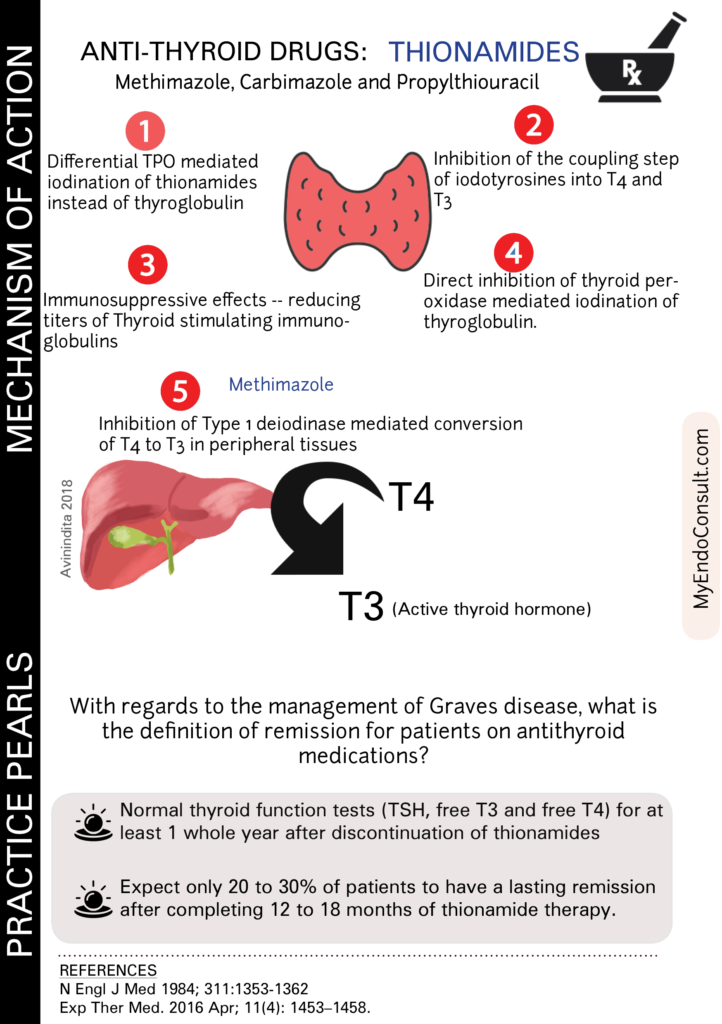Thionamides are a class of drugs that are used to treat hyperthyroidism. The mechanism of action of thionamides is not fully understood, but it is thought to involve the inhibition of TPO-mediated coupling and the suppression of T cell-mediated immunity.
Thionamides also decreases the activity of type 1 deiodinase, which is responsible for the activation of T4 (that is its conversion to active thyroid hormone, T3). The result is a decrease in T3 levels and an increase in T4 levels. The net effect is a decrease in thyroid hormone production and an improvement in symptoms.

Liu L, Lu H, Liu Y, Liu C, Xun C. Predicting relapse of Graves’ disease following treatment with antithyroid drugs. Exp Ther Med. 2016 Apr;11(4):1453-1458.
Cooper DS. Antithyroid drugs. N Engl J Med. 2005 Mar 3;352(9):905-17.
Kindly Let Us Know If This Was helpful? Thank You!


